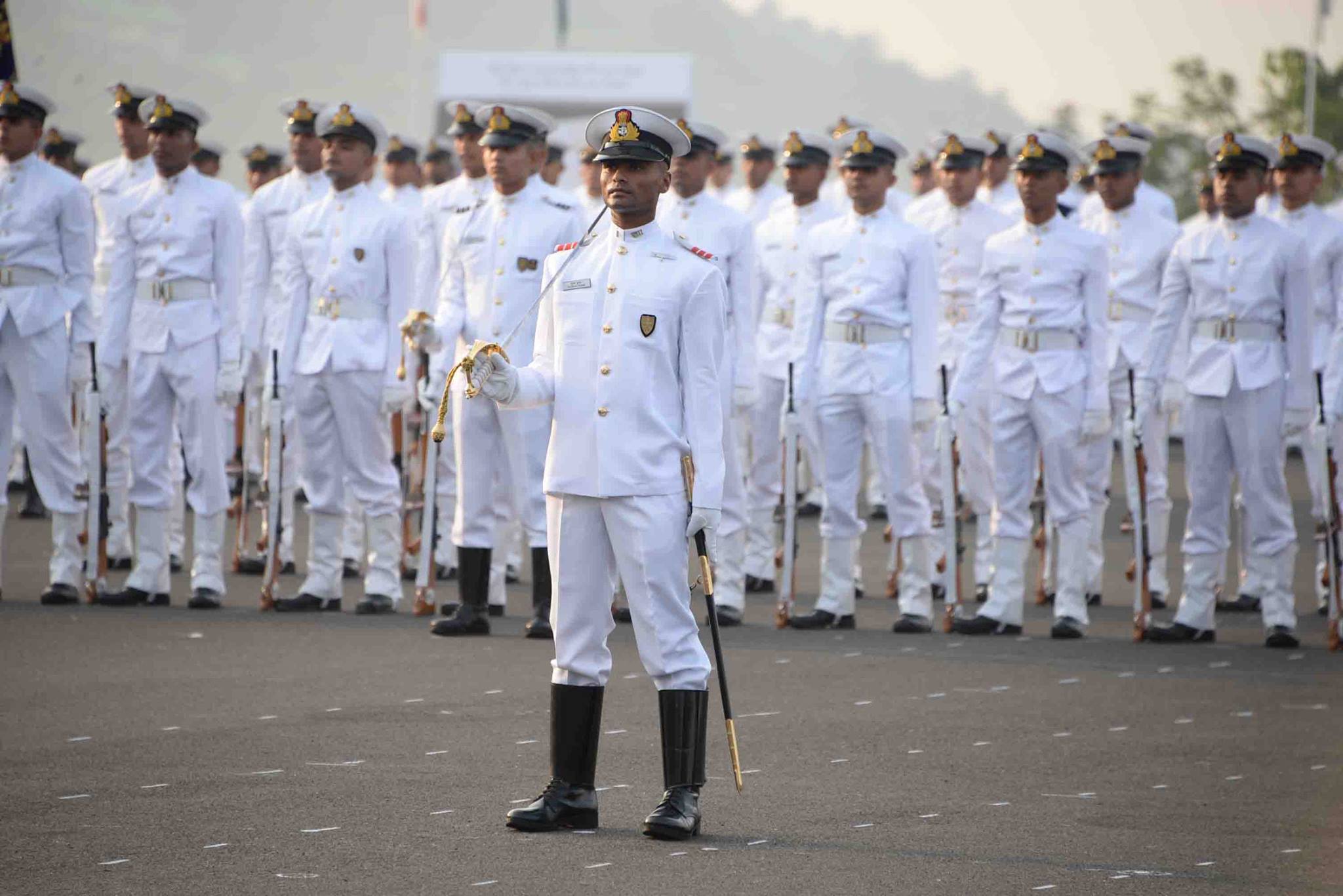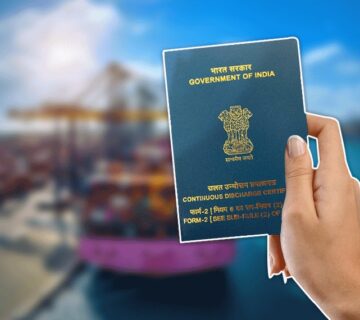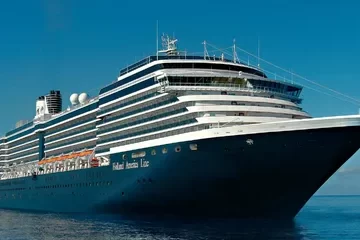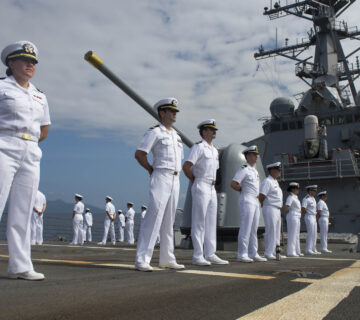The merchant marine, which is in charge of moving cargo across international waters, is a vibrant and significant component of world trade. The industry offers professional possibilities to anyone looking for an exciting and challenging job. In this article, we discuss the pathway of joining the merchant navy, i.e. the merchant navy courses after 12th std. The benefits of the merchant navy are:
- Global connections and travel opportunities: The Merchant Navy offers a unique lifestyle that allows individuals to explore different parts of the world. Seafarers have the opportunity to sail through exotic lands, visit many countries, and interact with different cultures. This global exposure is unmatched by many other professions.
- Beneficial Salary: The Merchant Navy career is known for its competitive salary. A career in the merchant navy is a financially rewarding option as it offers higher salaries for all workers.
- Exciting and dynamic work environment: The Merchant Navy offers a dynamic work environment for those seeking excitement and challenge in their careers. A thrilling environment is created by the constantly shifting water conditions, the unexpected weather, and the necessity for quick judgments.
- Career development and advancement: The Merchant Navy offers a structured career development approach. People can progress from startups to become police officers or engineers, who can rise to managerial positions.
- Job security and high demand: Seafaring is an important part of international trade, creating a constant demand for skilled and qualified seafarers. This requirement means job security, providing merchant marines with a stable and reliable career.
- Use of Advanced Technology: Seafarers use state-of-the-art navigation systems, equipment, and communications equipment. Exposure to advanced technologies not only enhances their skills but also keeps them ahead of technological developments in the maritime industry.
- Tax benefits for seafarers: Many countries offer tax benefits to individuals serving in the merchant marine. These tax incentives can increase the financial attractiveness of offshore operations, making it an attractive option for those who are mindful of their budgets.
While the specific eligibility criteria may vary, the general requirements for admission to Merchant Navy courses after 12th include:
- Educational Qualification: Completion of 10+2 with a science background, including Physics, Chemistry, Mathematics, and English.
- Age Limit: Typically, candidates should be above 18 years of age at the time of admission.
- Medical Fitness: Good physical and mental health is a prerequisite. Candidates must undergo a medical examination and meet the prescribed health standards.
Merchant Navy courses after 12th std:
The Diploma in Nautical Science (DNS) has duration of one year and requires candidates to have completed 10+2 with Physics, Chemistry, Mathematics, and English, holding a minimum of 60% aggregate. The B.Sc. Nautical Science is a three-year program with the same eligibility criteria. The B.Tech. Marine Engineering, spanning four years, also mandates a 60% aggregate in 10+2 with the additional requirement of qualifying in entrance exams such as IMU CET. Similarly, the three-year B.Sc. Marine Engineering necessitates 10+2 with a 60% aggregate. The G.P. Rating Course has a flexible duration ranging from six months to one year, requiring a minimum of 50% aggregate in 10+2 with specified subjects. The Electro-Technical Officer (ETO) Course has eligibility criteria similar to that of the G.P. Rating Course, with some institutes possibly requiring a Diploma in Electrical Engineering.
As these courses demand an investment of a lot of time, they may not be feasible for many people, and hence, there are other courses with less time requirements, allowing you to get a quicker entry into the industry. These courses are internationally recognized and allow you to get globally placed in versatile job roles. These are:
- According to the International Convention, seafarers must complete basic safety training, which covers basic firefighting, personal survival skills, elementary first aid, and social responsibility and personal safety for the Standards of Training, Certification, and Watchkeeping for Seafarers (STCW). The purpose of this training is to give sailors the know-how they need to identify possible threats and handle emergencies while working aboard a vessel. For those looking for work in the maritime sector, this course serves as the first milestone. The eligibility criteria for this course require the candidate to be a minimum of 18 years of age- class 10th and above from a recognized board and assessed to be medically fit by an authorized doctor.
- STSDSD Stands for Security Training for Seafarers with Designated Security Duties: these training courses are meticulously designed to equip seafarers with the knowledge and skills necessary to fulfill their designated security duties on board ships. Regardless of your level of experience, our courses offer insightful analysis and hands-on training to improve your understanding of maritime security. This is an extensive training course to develop competency. You will also be ready to identify possible security threats, put the necessary safety precautions in place, and deal with security-related crises skillfully, guaranteeing the safety of your ship and crew. This requires that you be at least eighteen years old and have completed Class 10th or higher from a board that has been approved by the State or Central Government of India. Its eligibility criteria also require you to have a fitness certificate.
- If you have previously completed a personal survival techniques (PST) course or a fire prevention and firefighting (FPFF) course but have been out of work for a while, you can sign up for refresher courses, which allow seafarers to refresh their skills and advance their knowledge according to industry standards, allowing them to stay up to date with practices. The Refresher Course for Personal Survival Techniques (RPST) and the Refresher Course for Fire Prevention and Fire Fighting (RFPFF) are two of these courses.
In summary, the Merchant Navy is an important player in international trade and offers a variety of employment options to individuals looking for an exciting and demanding job. The maritime sector provides exceptional worldwide exposure, enabling sailors to visit other nations and immerse themselves in many cultures. Careers in this field are known for competitive and high merchant navy salary packages, which makes them a financially rewarding choice in addition to being adventurous. While the courses after the 12th, such as the Diploma in Nautical Science, B.Sc. Nautical Science, etc., provides the foundation for a career in the industry. There are also alternative courses like Basic Safety Training, STSDSD, and refresher courses for those seeking quicker entry into the industry. These alternatives cater to a wider audience, ensuring accessibility to individuals with varying time constraints and preferences, ultimately contributing to the high demand of the Merchant Navy.






No comment